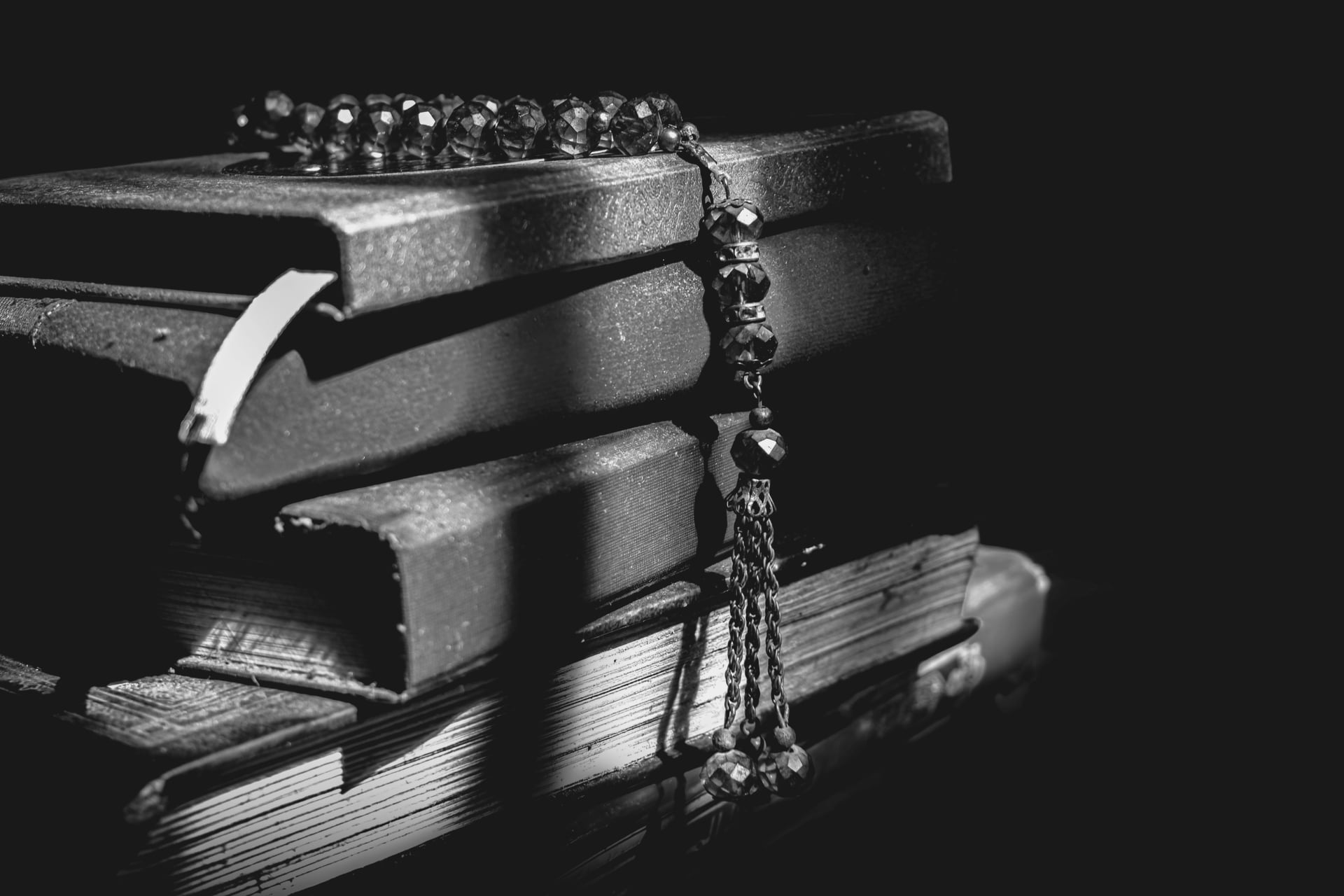Growing up in my house, books were sacrosanct, well-loved, and cheap or borrowed.
I got my first library card at the age of four. I began reading early. Each week, I observed eagerly as my mother exchanged the card with my name on it across the desk above my head and heard the stamping of the books that I then took home to read.
Be nice to the books. It was a rule. They are only borrowed.
We purchased books at garage sales, along with my jeans and shirts, always a season or two out of style, targeting me as a have-not. But books we piled up for practically nothing—picture books, chapter books, Lois Lowry, Stephen King. A dime here—a quarter there, a paper bag full of escape.
I followed the rules I was given. I treated books with respect. They brought me the world. I would keep them safe.
My sister was a different story. She was intellectually disabled, autistic, and had physical disabilities. From a young age she had seizures, but these were managed with medications for most of her life. She didn’t walk or talk until she was three, and never did either particularly well. She was, however, absolutely exceptional at destroying things.
My Ozarker grandfather used to say, “That girl could tear up a crowbar in a sandpile.” She poured out bags of flour or bottles of Hershey’s syrup for the sheer sensory joy of running her skinny fingers through them. She pulled the clothes off of every Barbie, and then usually the legs and heads. No toy really stood a chance of remaining intact.
Our poor books.
She was fascinated by them. A typical member of the Brown family, she adored books, though she only began to be able to read a few words by sight around age nine. It never stopped her. She beamed when people read to her. She spent hours flipping through cheap picture books or glossy National Geographic magazines. She loved running her fingers down the neat rows of numbers in my math books.
And then she would rip the pages clean from their spines. Or scribble endless circles like a tunnel into the pages with whatever ballpoint pen I had failed to secure in my bedroom to prevent just such an abomination from occurring.
I knew that to care for books was to keep them pristine. My sister loved them to death.
When I went to college, it was a shock to discover that all of the Very Intelligent Kids that attended the liberal arts college—to which I got a scholarship—wrote in their books. They underlined words, and they wrote in the margins. They dogeared pages, highlighted paragraphs, and did everything short of chew the paper like moths.
I was scandalized.
Expensive textbooks, purchased at our college bookstore, were mindlessly desecrated.
But I would not appear an artless rube. I picked up fine-tipped pens of half a dozen colors, and highlighters of vicious shades, and I attacked my books as if that would make me smarter. With a sensation of criminal mischief, I did what my richer classmates did.
I began by safely highlighting the subheadings of textbook chapters because they were certainly important. I next put exclamation points in red ink at the ends of other authors’ sentences. Soon I expansively double-underlined passages at random, and then read them aloud in class. They felt inexplicably more important because they had been so set apart from their fellows.
I had become a person who wrote in books. It satisfied some juvenile urge, like spray painting graffiti in a sculpture garden. I smugly told myself I was, “engaging with the texts.”
When the call came that my sister had died from one of her seizures, I was sitting in a year-long political science survey course at eight o’clock in the morning. The book splayed in front of me was certainly scribbled with who knows what random marginalia. I used a lot of green in Professor Bauman’s class.
I came back from the funeral broken, hurting, and wild. Nothing made sense in a world without my sister. My fancy liberal arts education out of state, with all of its pleasures, had been a respite. My future had been waiting for me at home in Missouri, with all the certainty of the Sword of Damocles, that I would be my sister’s caregiver someday. Her death gave me back every option for a future of my own, and it was like trying to swallow the Missouri River in a flood.
I don’t remember a lot of what happened when I returned to college the week after the funeral. I don’t remember a lot of what happened the year after she died. Clear strains stand out in the noise of being lost and suffering.
And during that time, when I wasn’t faking my way through understanding De Tocqueville and Aristotle, and dozens of other Great Thinkers of the Western Canon, I picked up Slaughterhouse-Five by Kurt Vonnegut.
It was sarcastic and devastating, and it read like I felt. And somehow, though I didn’t remember doing it, I conversed with the entire book while the protagonist, Billy Pilgrim, became as disconnected in his life as I was in my own. The story concerns the firebombing of Dresden, man’s persistent inhumanity to man, and an alien race that cannot understand how we perceive time and death.
Parts of the book resonated with me. I underlined them in purple and wrote them on my heart. These ideas felt both revolutionary and reassuring. Ideas such as when a person dies, they only appear to die. They are still very much alive in the past. All moments exist at once—the past, the present, and the future. Time is an illusion, we can choose the memories, and sit in that space. It is not linear, one moment after another, like beads on a string—it is everything, everywhere, all at once.
Suddenly, I was holding a string of beads looped on my fingers. Images of my sister resonant in amber resin beads. Somewhere she is eleven, surrounded by pages ripped from a Woman’s Day magazine. My sister’s big six-year-old head, somewhere, lolled to the side as she lets out a manly snore, lulled by a story I’ve read her. Somewhere, my sister is eight years old, sitting on the floor of the regional county library, pulling books from the shelves, hardbacks slipping across each other to the ground, like sandcastles pulled by the tides as I wander further into the children’s stacks. Somewhere, my sister is fifteen, and lies stiff in a casket surrounded by white, shirred satin, as I crush her tiny funeral program in one hand, and brush her skinny, now stilled fingers with the other. Somewhere.
I filled that copy of Slaughterhouse-Five with words beyond exclamation points and shallow diatribes. I conversed with the Tralfamadorians about death. I talked to Vonnegut—a satirist, a former prisoner of war, and a witness to tragedy—about how he could still laugh. I talked about eternity from my vast eighteen years. All of this in black, purple, and red inks. There were the occasionally scribbled hearts, and many underlines.
I moved across five states. I occupied almost a dozen different houses and apartments. Friends threw out their backs carrying moving boxes filled with my books. My bookshelves binged and purged, over and over.
I found that copy of Slaughterhouse-Five fifteen years later. In between, I had lost my father, and I was stuck in a great deal of mourning again. I opened the book, recalling that I had been influenced by the story—the beads on a string and the notion that Billy Pilgrim had become unstuck in time.
Then I saw the type defaced by my unhealed loss. It wasn’t mere ink on those pages. My heart had bled all over them.
I read Slaughterhouse-Five again, front to back. And I read the second story that the copy’s marginalia told me. I sat beside my eighteen-year-old self and read it with her. I was mourning with her again, the wounds fresh, the pain new. I watched as a teenager wrestled with big questions.
Why do bad things happen to innocent people? How do we deal with survivor’s guilt? What should we do with the time we are given? How can we possibly laugh with so much wrong in this world? How will we ever stop laughing at what’s wrong with this world?
I saw how much I had grown in fifteen years, and how much I hadn’t. I saw where the cracks in my soul began—the freedom of my life shadowed always by the trauma that purchased it. In that book, I found the place where my tears started, the ones that never really stopped. I saw more of myself in those margins than I had observed in all of the photographs taken in between.
Because I saw myself clearly in a bead of amber: Cassie, age eighteen, lying on her side in a dorm room, a red Pilot gel point in hand, crying and underlining the word, “forever.”

